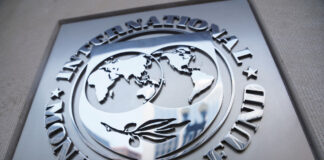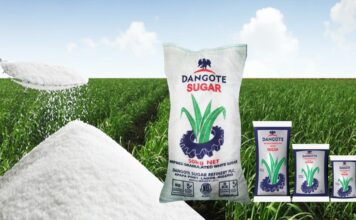Fitch Affirms Fidelity Bank Ratings With Stable Outlook
Fitch Ratings has affirmed Fidelity Bank Plc’s credit rating at ‘B-‘ with a stable outlook, according to its recent report. The global rating agency also upgraded the bank’s National Short-Term Rating to ‘F1+(nga)’ from ‘F1(nga)’.
It said the upgrade reflects the improvement in the bank’s local-currency funding profile, as evidenced by the increase in the share of low-cost current and savings accounts in the bank’s customer deposit base to 87.1% at the end of the first quarter (1Q2023) from 75% in 2021.
According to Fitch, Fidelity Bank’s rating affirmation is driven by its standalone creditworthiness, as expressed by its Viability Rating (VR) of ‘b-‘, reflecting a growing franchise and a low share of impaired loans, as well as good capitalisation and funding.
These upsides were noted to be balanced against high sensitivity to Nigeria’s challenging operating environment, higher credit concentrations relative to capital, and high levels of Stage 2 loans, as well as weaker profitability and foreign-currency (FC) liquidity than larger domestic peers.
Fidelity’s Ratings are driven by its standalone creditworthiness, it said. They balance a growing franchise and good capitalisation against weaker profitability than higher-rated peers.
In Nigeria, banks continue to contend with US dollar shortages and the Central Bank of Nigeria’s (CBN) highly burdensome cash reserve requirement. Fitch expects reform progress under the new administration, including the elimination of fuel subsidies and gradual liberalisation of the naira.
However, Fitch said there is a risk of sharp naira depreciation due to the large disparity between the official and parallel exchange rates. The CBN has increased its policy rate by 700 basis points since April 2022 due to rising inflation.
Fidelity is Nigeria’s sixth-largest bank, representing 5% of domestic banking system assets at end-2022. Strong balance sheet growth in recent years has increased market shares. “We expect these to increase further but remain below those of the five largest banking groups.”, Fitch said.
On the downside, the bank’s single-borrower credit concentration is considered to be on the high side, with the 20 largest customer loans representing 39% of gross loans.
The tier-2 Nigerian bank also has significant exposure to the sovereign assets, which Fitch noted to be material at 5.5x of its core capital estimate at the end of 2022.
Fidelity’s impaired loans ratio printed at 3.6% in the first quarter, and it is noted to have been flattered by strong loan growth in recent years. Fitch Ratings forecasted the ratio will increase moderately in the near term.
It said in the rating note that the bank’s 34% specific loan loss allowance coverage of impaired loans at the end of the first quarter of 2023 was low.
Fidelity Bank’s stage 2 loans, which was 20% of gross loans at the end of 1Q2023; concentrated within the oil and gas and power sectors and largely US dollar-denominated, remain high.
The bank is however noted to be profitable at the same time, though it controls just 4% of the total banking assets. Though below some larger players, Fidelity delivers sound profitability, as indicated by operating profit/risk-weighted assets (RWA) averaging 2.6% over the past four years.
Operating profit/RWAs improved to 3.4% in 2022 from 2.1% in 2020 due to a wider net interest margin, reduced loan impairment charges (LICs), and a declining risk-weight density.
“We expect the ratio to improve further in the near term”, Fitch projected.
Fidelity’s Fitch Core capital ratio of 19.5% at end-2022 is higher than most Nigerian medium and small banks, having increased in recent years, despite strong growth due to internal capital generation and a declining risk-weight density.
Pre-impairment operating profit is good (2.5% of gross loans in 2022), providing a buffer to absorb LICs without affecting the capital.
“We expect a private placement capital increase in 1Q23 to add about 100bp to regulatory capital ratios, but the positive impact will be diluted by the acquisition of Union Bank UK plc”. The customer deposit base comprises a high percentage of low-cost current and savings accounts at 87.1% of total customer deposits at the end of first quarter in 2023.
The rating note said Fidelity Bank’s single-depositor concentration is fairly high, with the 20 largest deposits representing 25% of customer deposits at end-2022. #Fitch Affirms Fidelity Bank Ratings With Stable Outlook.#Fitch Affirms Fidelity Bank Ratings With Stable Outlook#




























































































